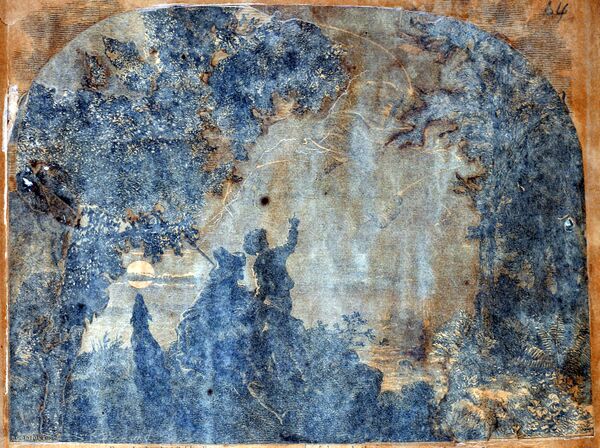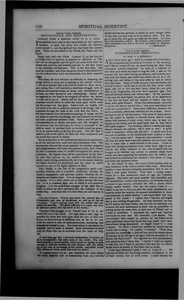
Self-Sacrifice and Regeneration
The ancients were wise in their description of the spiritual enemies. A spirit has three foes—itself; the external world around it; and the spiritual foes that beset the upward path. These are described as the World, the Flesh and the Devil.
Begin with self—the Flesh. Conquer it, so that you are no longer slave to appetite, to passion, to ambition: so that self can be abnegated, and the spirit can come forth from its hermit-cell, and live, and breathe, and act in the free scope of the universal brotherhood. This is the first step. Self must be crucified: and from the grave where it lies buried will rise the enfranchised spirit untrammeled, free from material clogs.
This done, the soul will have no difficulty in despising the things which are seen, and in aspiring to the eternal verities. It will have learned that truth is to be found in them alone; and, seeing this, it will maintain a deathless struggle with all external and material forms, as being only adumbrations of he true, too often deceptive and unsatisfying. Matter will be regarded as the husk to be stripped off before the kernel of truth can be got at Matter will be the deceptive, fleeting phantism behind which is veiled the truth upon which none but the purged eye may gaze. Such a soul, so taught, will not need to be told to avoid the external in all things, and to penetrate through the husk to the truth that lies below. It will have learned that the surface-meanings of things are for the babes in spiritual knowledge, and that beneath an obvious fact lurks a spiritual symbolic truth. Such a soul will see the correspondences of matter and spirit, and will recognize in the external only the rude signs by which is conveyed to the child so much of spiritual truth as its finite mind can grasp. To it, in veriest truth, to die has been gain. The life that it leads is a life of the spirit; for flesh has been conquered, and the world has ceased to charm.
But in proportion as the spiritual perceptions are quickened, so do the spiritual foes come into more prominent view. The adversaries, who are the sworn enemies of spiritual progress and enlightenment, will beset the aspirant’s path, and remain for him a ceaseless cause of conflict throughout his career of probation. By degrees they will be vanquished by the faithful soul that presses on. but conflict with them will never wholly cease during probation-life, for it is the means whereby the higher faculties are developed, and the steps by which entrance is won to the higher spheres of bliss.
This, briefly, is the life of the progressive spirit—self- sacrifice, whereby self is crucified; self-denial, whereby the world is vanquished; and spiritual conflict, whereby the adversaries are beaten back. It is no stagnation; even no rest; no finality. It is a daily death, out of which springs the risen life. It is a constant fight, out of which is won perpetual progress. It is the quenchless struggle of the light that is within to shine out more and store into the radiance of the perfect day. And thus only it is that what you call heaven is won.
[Sie itur id astra. That is very much the central idea of Christianity, and also of Buddhism, as well as of the old Occultists. Christ’s sayings teem with the notion that animated his own life. The great difficulty is to carry out such an abstract system into operation in the world.]
Therein is the struggle, as he himself said, to be in the world, but not of the world. The high ideal is well nigh impossible for those who have upon them the care of daily toil. Hence we have striven to withdraw you, so far as we can, from the objective side of spirit-intercourse, foreseeing that it would bn hurtful to you. You must strive to rise above the material and to leave H behind. Such intercourse is fitted only for those who can be secluded from the cares of daily life.
[I said long ago that I believed mediumship, if carried out to be incompatible with daily work in the world. The very development of sensitiveness, which grows so rapidly, is quite enough to unfit the medium for rude contact with the world, or, at any rate, to encourage in him moods, and draw round him influences which suite him unfit for work.]
To a great extent it is so: and therefore we have drawn the stove material side of mediumship from you, and that should develop the spiritual, in which no such danger lurks. At any rate, you may trust us to do what is wise. The danger is when they who guide are unfit for the work. It is then that risk becomes serious. Be content; your course is clear. Only remember that now is the hour and power of darkness. Be patient.
Editor's notes
Sources
-
Spiritual Scientist, v. 4, No. 11, May 18, 1876, p. 128

